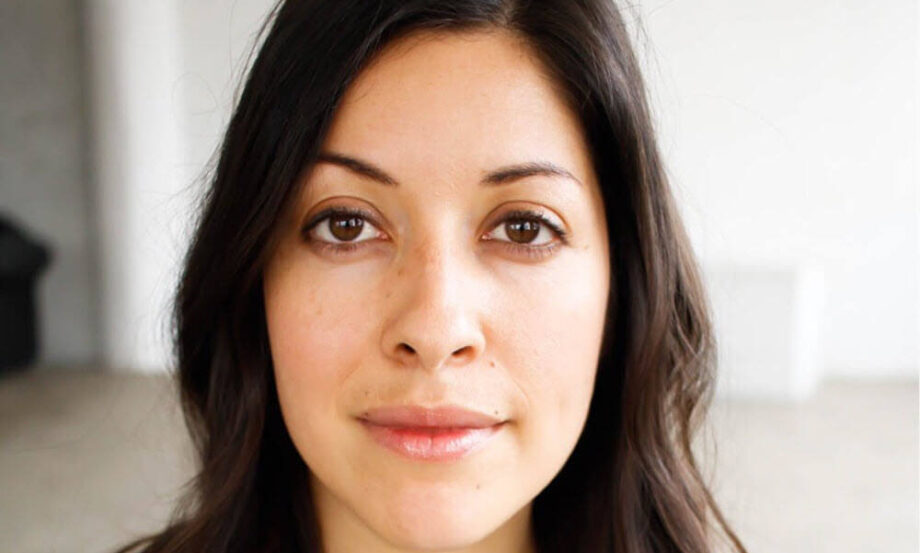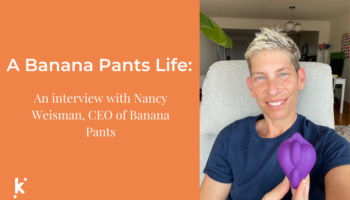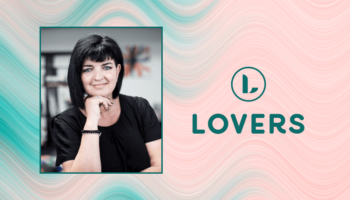For years, Erica Garza was addicted to shame. From the moment she first masturbated to a climax that filled her with shame with the help of the bathtub faucet at 12 years old to the growing realization that her porn addiction was merely a means for escape from her problems, Garza covers it all in her debut-memoir, "Getting Off: One Woman’s Journey Through Sex & Porn Addiction."

An Interview with Erica Garza, Author of ‘Getting Off: One Woman’s Journey Through Sex & Porn Addiction’
Garza is quick to point out that a healthy appetite for sex and porn are, and never were, her problem. The issue, she says, is that from that first climax, the cycle of pleasure and shame became one she could not separate, and could not escape.
Recently, we spoke about women and the stigma of sex and porn addiction and why Garza still believes a healthy relationship with porn is still possible.
Pauline Campos: There’s a giant universal truth to "Getting Off " that I have not seen anyone else ask you about or bring up in interviews. I’m talking about obsessive compulsive disorder; the absolute need to do that one thing that would provide you with the only release that could calm your racing thoughts. The shame. The secrecy. Doing it anyway because you have to to, knowing you’re not normal but not knowing how to be anyone other than who you are.
For you it’s sex and porn addiction. For me it’s eating disorders and dermitillomania. I’ve stood in front of a mirror for an entire night digging into one spot, unable to move until I felt the release of broken skin. "Getting Off "is about your sex and porn addiction on the surface, but there’s so much more there as the layers are peeled back. The mental health component is too big to ignore. Did that surprise you?
Erica Garza: I’m so glad you brought this up because I think there are definitely aspects of OCD in this. You bring up dermotillomania. When I was writing "Getting Off," I actually lifted pieces from my MFA thesis called “Hairywoman” which focused primarily on my obsession with body hair removal. There were a lot of similarities between compulsively picking at parts of my body with tweezers (and waxing, shaving, obsessing) and compulsively masturbating/watching porn. These things were done in secret, they made me feel ashamed, yet the action itself provided great relief both physically and emotionally, which made it hard to stop.
PC: Talk to me about personal shame and sexual empowerment. Is it possible to be a recovering sex and porn addict? If so, are you?
EG: I consider myself a recovered sex and love addict. But love and sex are different from alcohol and drugs because you’re not meant to abstain completely. It’s all about finding balance. In the early stages I cut out porn completely and committed to strict monogamy, but as time went on I realized that confining myself to strict guidelines wasn’t authentic to who I am. I still wanted to be an open-minded, experimental sexual person. I just didn’t want to feel bad about it anymore.
Read: Practical Ways to Reduce Your Sexual Shame
PC: It always seems to boil down to how we see and feel about ourselves, doesn’t it? Even so, there’s the added weight of stigma to deal with. We already know it’s a factor in the general perception of sex and porn addiction. How would you say stigma affects women, particularly those, such as yourself, born into the traditionally patriarchal Latino culture?
EG: There is a stigma to female sex and porn addicts - Latino or not - because there is still so much silence. Our culture says that men want sex more than women, so naturally men are more likely to become addicted. What ends up happening is when a woman then struggles with this sort of thing she’ll think she’s the only one and keep her struggles to herself. I don’t think there’s anything that hinders healing more than this kind of silence and silence only breeds more shame. As far as my Latino Catholic household, sex was something that was supposed to happen between two married people. This isn’t even something my parents told me. They left the teaching up to the nuns at school. Sex was something awkward, something dirty, something we didn’t talk about. I think that mystery only made it more enticing and when I started to have sex in my teens, it was something I kept secret. And because it was so secretive I didn’t feel safe in asking about where and how to get condoms or birth control. I took a lot of chances.
PC: How did you know porn was having a negative effect on your life (beyond the common assumption that pornography is "bad")? Or rather, do you think it’s possible to watch porn just because it’s a turn on and you like it without developing an addiction?
EG: I absolutely think you can have a healthy relationship with porn. In fact, I still watch porn, but I don’t feel the need to binge on it anymore because I don’t use it to escape from my problems anymore. Because I learned more effective methods of dealing with my emotions, I can use porn now simply because it’s hot. Of course, when you’re an addict like I was, it’s a process to develop this healthier kind of relationship. I took about a six-month break in the early stages of my recovery, which helped me start dealing with all the stuff I was trying to run away from and integrate healthier habits in my life, but my intention in writing this book was never to demonize porn. Sure, the accessibility I had to it early on and the endless novelty porn presented helped to accelerate my addiction but I could’ve just as easily turned to another vice —drugs, alcohol, food, etc. I just happened to choose this path. My problems had much less to do with the escape method I chose and much more to do with why I wanted to escape in the first place.
Read: Think Sex Addiction Sounds Fun? It Is. But It Still Ruined My Life.
PC: How has your sense of personal shame around sexuality impacted your relationship with porn and sex, and how has that relationship evolved throughout your recovery?
EG: Sometimes I would seek out porn clips that would cause me to feel shocked or disgusted -hardcore scenes that turned me on because they also turned me off. But I needed to have a sense of shame with my pleasure because that was how I discovered my first orgasms - feeling like I was doing something wrong and sinful, afraid of being caught. I didn’t know how to separate those feelings. This isn’t to say that I think there’s anything inherently wrong with hardcore porn. Desire is complex and I cast no judgement on what people like and why, but for me, I wanted to feel what it was like to have pleasure without that feeling of shame or shock or danger. Because beyond porn, when I was addicted, I would often seek those feelings in destructive relationships and risky sexual situations. I didn’t know how to have real intimacy. I would even sometimes perform in the bedroom, copying what I’d seen on the screen, not so much because I liked it but because I thought that’s what my partner might like.
PC: How can people use porn in a healthy way (and how they can determine the difference between healthy and unhealthy)?
EG: It’s for each person to decide. I can’t define what’s healthy and what’s not, or what constitutes “too much” porn, though I often get asked. I can only say what my experience was. I determined that I had an issue because when I wanted to stop watching, I felt powerless in stopping. I’d spend hours at a time, neglecting other pursuits in my life - connecting with friends and family, seeking a fulfilling career, or simply taking care of myself. I felt incredibly lonely for a really long time and afraid of people finding out who I really was. I used porn to escape difficult emotions but then I always felt empty and ashamed afterwards. That’s how I knew I needed to step away and figure out how to help myself. That discovery will look different to everyone.
"Getting Off: One Woman’s Journey through Sex & Porn Addiction" by Erica Garza, is available at all major retailers.




